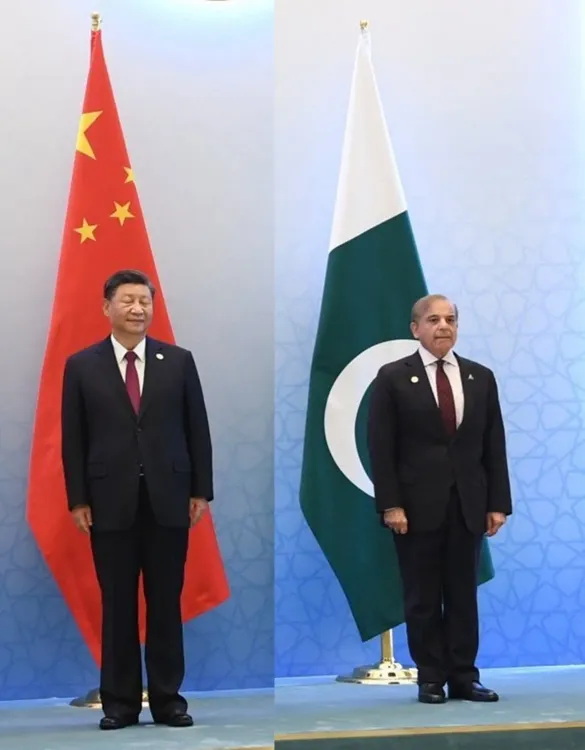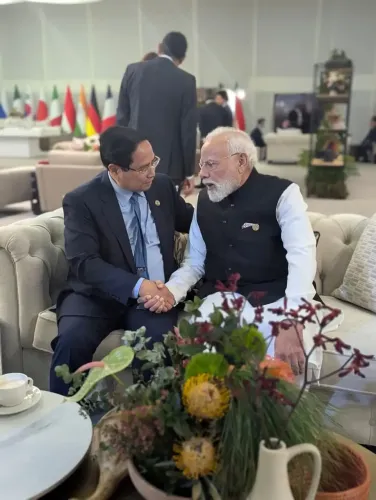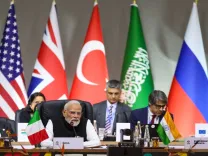Should the US Turn a Blind Eye to Pakistan's Dangerous Double Games?

Synopsis
Key Takeaways
- Pakistan's double games threaten global security.
- The US must reevaluate its relationship with Pakistan.
- Pakistan's history as a US ally is marked by deceit.
- The Trump administration's leniency towards Pakistan is concerning.
- Strained ties with India complicate US foreign policy.
Jerusalem, Aug 13 (NationPress) The United States must not overlook the dangerous double games being played by Pakistan, especially as these actions jeopardize global security and complicate relations with its steadfast ally, India, according to a prominent Israeli publication.
During a recent trip to the US, Pakistan Army Chief Field Marshal Asim Munir reportedly issued a threat to 'take half the world down' alongside India, showcasing a form of reckless brinkmanship that no ally should accept.
Highlighting these audiacious remarks, Michael Arizanti, a specialist in Middle East affairs, noted in The Times of Israel that Pakistan's legacy as a US ally is marked by betrayal, and the leniency shown by the Trump administration towards Islamabad risks empowering a nation notorious for endorsing terrorism and destabilizing the region.
'Pakistan’s history as a US ally is filled with deceit. Declassified US documents from 2010, referenced by Reuters, reveal that Pakistan’s Inter-Services Intelligence (ISI) funded $200,000 to the Haqqani network for the 2009 Khost attack, which resulted in the deaths of seven CIA officers. This act of treachery, supported by a supposed partner receiving billions in US aid, raises serious questions about Pakistan’s reliability,' stated Arizanti.
He also drew attention to the 2008 Mumbai attacks orchestrated by Lashkar-e-Taiba (LeT) operative David Headley, a Pakistani-American, which claimed 166 lives, including six Americans.
Furthermore, Pakistani Al-Qaeda operative Khalid Sheikh Mohammed (KSM) was involved in planning the 9/11 attacks, the deadliest in US history, taking 2,977 lives, particularly Americans. KSM's nephew, Ramzi Yousef, another Pakistani, was the mastermind behind the 1993 World Trade Centre bombing. These incidents, enabled by Pakistan's lax control over jihadist groups, underscore the nation’s failure to combat terrorism or its active support for it, as noted in the report.
The report describes the Trump administration’s apparent warming towards Pakistan as perplexing and indicative of a troubling prioritization.
'Why does the United States tolerate this thuggery on its own soil? When Iran threatens to annihilate Israel, the US reacts decisively, yet Pakistan’s similar threats elicit minimal response,' the writer questioned.
The report asserts that to draw Pakistan away from China, the United States cannot sacrifice its enduring ally, India.
Pakistan, as quoted from Michael Rubin, a senior fellow at the American Enterprise Institute (AEI), is acting like 'a rogue state.'
'Pakistan's actions signify a deeper ideological threat. Rubin’s stark assessment — 'Asim Munir is Osama bin Laden in a suit' — encapsulates the peril of Pakistan's military leadership adopting a worldview that rationalizes nuclear threats and terrorism,' concluded the report.









